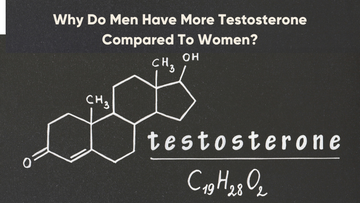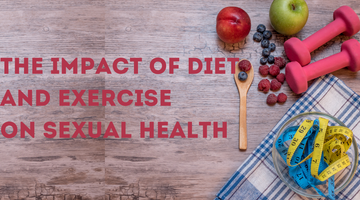
Testosterone is usually referred to as the male sex hormone. Nevertheless, both men and women can produce testosterone. Having said that, the levels of testosterone produced and their functions differ significantly between genders. If these levels are out of balance in either men or women, physical and emotional changes can occur. Here's everything you need to know about testosterone levels in men and women.
Despite some focus on nature/nurture interactions, human biology is typically studied within the framework of sex rather than gender. Testosterone is an example of biology being studied as a natural difference: men's higher testosterone is commonly regarded as an innate "SEX" difference. However, the study demonstrates that, even for biological measures, gender-related social factors matter. Gender socialization may influence testosterone by encouraging men but not women to engage in testosterone-boosting behaviors.
Testosterone for Men
Male testosterone levels begin to rise significantly at the start of puberty. During this period of development, testosterone is responsible for a male's voice cracking and eventually deepening. Increased testosterone during puberty also causes the growth of facial and body hair, as well as muscle mass and increased strength.
Testosterone is known as the male sex hormone because it influences a man's sexuality. Testosterone is essential for libido, sex drive, erections, and the production of sperm and seminal fluid. A man's sexuality may be healthy if his testosterone levels are healthy. If these levels are too low, a man's sexuality and mood can suffer. He may lose muscle mass and bone density, lose facial and body hair, gain weight, and become stressed.
Testosterone In Women
Women produce testosterone in their ovaries, adrenal glands, and fat cells, which differs from how men produce the hormone. During puberty, women's estrogen levels rise, which is the hormone responsible for all of their bodily changes. Though they continue to produce testosterone, it is only about one-seventh of what men produce. The primary function of testosterone in female bodies is sexuality, though it has several hundred other applications. Women, like men, who have low testosterone levels can have low sexual arousal and libido. It can also lead to the onset of osteoporosis, a condition in which bone density decreases that is more common in women.
Testosterone therapy can result in breast shrinkage, facial and body hair growth, and feelings of disparity, especially aggression and hostility. It can also cause irregular menstrual cycles, voice deepening, and acne. High testosterone levels in women may be a symptom of the polycystic ovarian syndrome (PCOS), which can cause irregular menstrual periods, facial hair growth, and infertility issues.
Men eventually have higher testosterone levels than women because their testes produce 30 times more testosterone than they did before puberty. At any age, men have 15 times the amount of circulating testosterone as women. Testosterone levels fluctuate throughout a person's life. Total testosterone levels in males and females are shown below.
Typical levels of total testosterone in children and adolescents
Age Male (in ng/dl) Female (in ng/dl)
7–10 years old 1.80 to 5.68 2.69 to 10.29
13–17 years old 208.08 to 496.58 16.72 to 31.55
18 years and older 265–923 15–70
What role does testosterone play in each gender?
Testosterone and other androgens are involved in the following processes in Men:
- Sperm Production
- Sex Drive
- Red Blood Cell Production
- Bone Density
- Facial & Body Hairs
- Growth in Muscle Strength
- Distribution of Body Fat
In women, Testosterone and other Androgens play an important role in the following:
- Fertility
- Menstrual Health
- Vaginal Health
- Breast Health
- Bone health
- Sexual Stimulation
Female bodies convert Testosterone and other Androgens produced into female sex hormones with ease. During puberty, both males and females experience an initial surge of testosterone and estrogen that lasts until early adulthood.
Low testosterone has been linked to decreased sex drive and fertility across the sex spectrum.
Males Need Testosterone For :
- Puberty Development,
- Sperm production,
- Muscle & Bone Strength.
- Cognitive Function & Health
- Better Sex Drive
- For Heart Health
Females Need Testosterone For:
- To Maintain Levels of Other Hormones.
- Fertility & Sexual Drive
- Generating New Blood Cells
- Cognitive Function & Health
- Heart Health
- Muscle & Bone Building
Healthy testosterone levels in both men and women are essential for optimal physical and mental function. In both men and women, testosterone is important for learning and memory, particularly spatial intelligence. It can reduce pain and increase pain tolerance. It has also been linked to a decrease in cognitive empathy, or the ability to read another person's emotions through body language and facial expressions.
It is important to know what type of testosterone affects your health and every individual has different levels of testosterone in their body due t various factors depending upon body type. So get consulted first with your family doctor or you can even contact our Health Expert or connect us at +919867667699 to get the best diagnosis.




